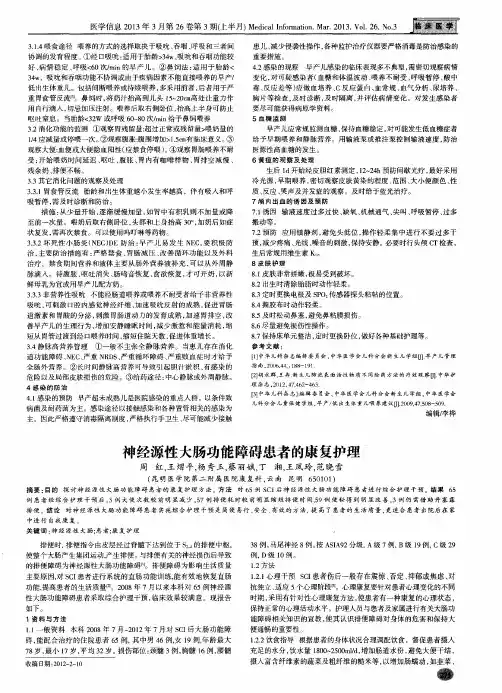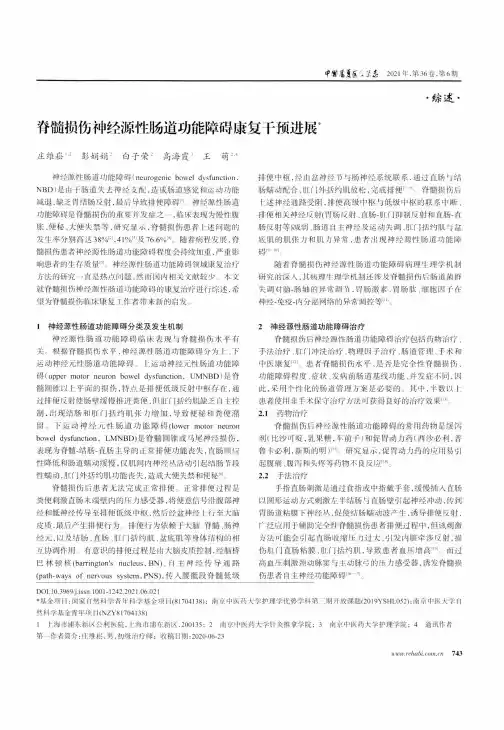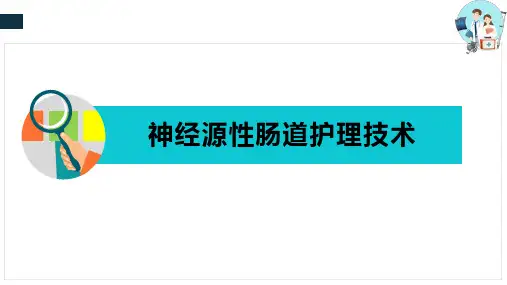第六节神经源性肠道的康复评定与处理
- 格式:ppt
- 大小:617.50 KB
- 文档页数:30
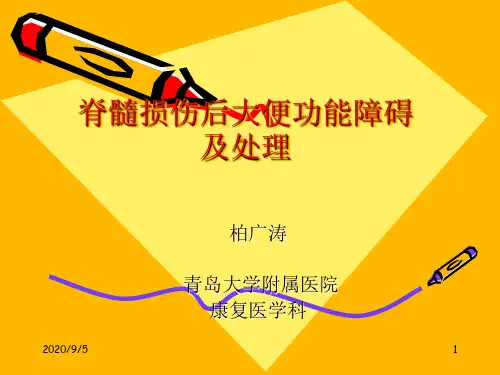
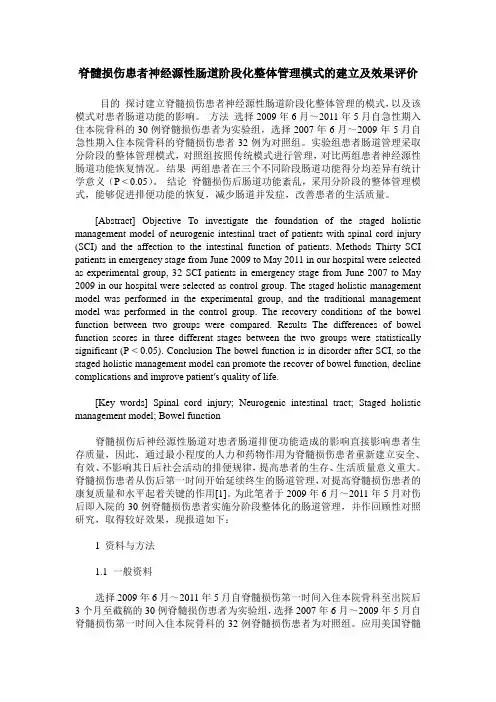
脊髓损伤患者神经源性肠道阶段化整体管理模式的建立及效果评价目的探讨建立脊髓损伤患者神经源性肠道阶段化整体管理的模式,以及该模式对患者肠道功能的影响。
方法选择2009年6月~2011年5月自急性期入住本院骨科的30例脊髓损伤患者为实验组,选择2007年6月~2009年5月自急性期入住本院骨科的脊髓损伤患者32例为对照组。
实验组患者肠道管理采取分阶段的整体管理模式,对照组按照传统模式进行管理,对比两组患者神经源性肠道功能恢复情况。
结果两组患者在三个不同阶段肠道功能得分均差异有统计学意义(P < 0.05)。
结论脊髓损伤后肠道功能紊乱,采用分阶段的整体管理模式,能够促进排便功能的恢复,减少肠道并发症,改善患者的生活质量。
[Abstract] Objective To investigate the foundation of the staged holistic management model of neurogenic intestinal tract of patients with spinal cord injury (SCI) and the affection to the intestinal function of patients. Methods Thirty SCI patients in emergency stage from June 2009 to May 2011 in our hospital were selected as experimental group, 32 SCI patients in emergency stage from June 2007 to May 2009 in our hospital were selected as control group. The staged holistic management model was performed in the experimental group, and the traditional management model was performed in the control group. The recovery conditions of the bowel function between two groups were compared. Results The differences of bowel function scores in three different stages between the two groups were statistically significant (P < 0.05). Conclusion The bowel function is in disorder after SCI, so the staged holistic management model can promote the recover of bowel function, decline complications and improve patient′s quality of life.[Key words] Spinal cord injury; Neurogenic intestinal tract; Staged holistic management model; Bowel function脊髓损伤后神经源性肠道对患者肠道排便功能造成的影响直接影响患者生存质量,因此,通过最小程度的人力和药物作用为脊髓损伤患者重新建立安全、有效、不影响其日后社会活动的排便规律,提高患者的生存、生活质量意义重大。
